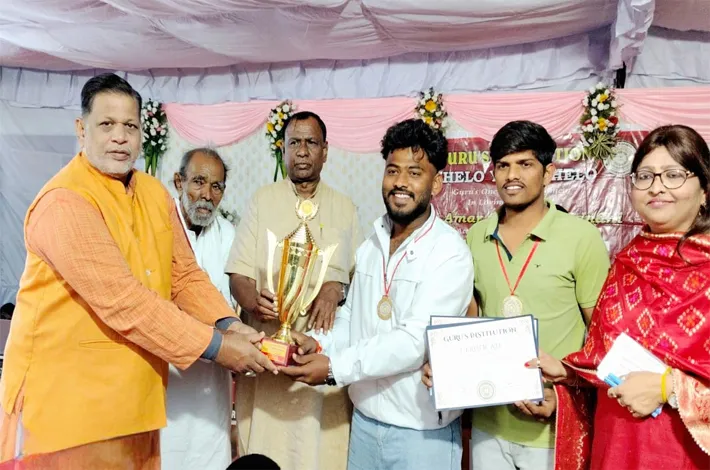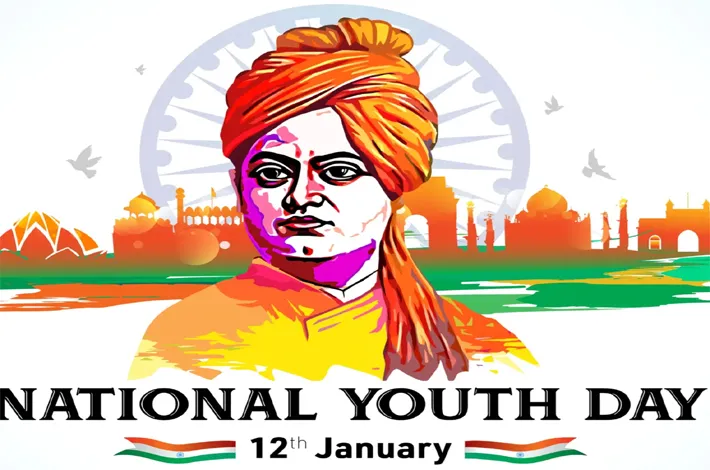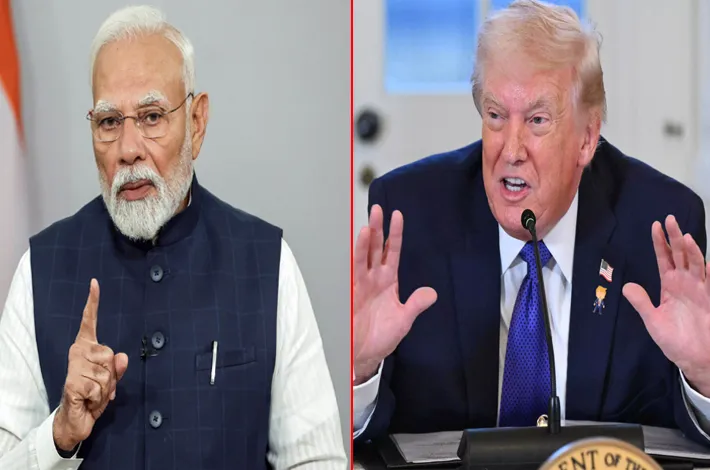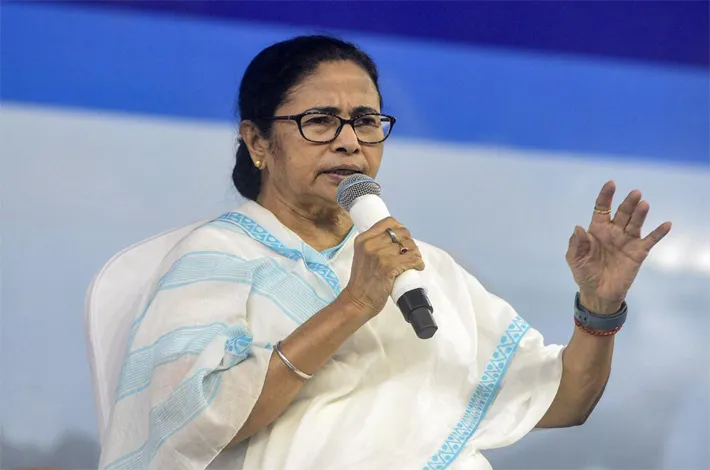The crimson veil unveiled
05-05-2025 12:00:00 AM
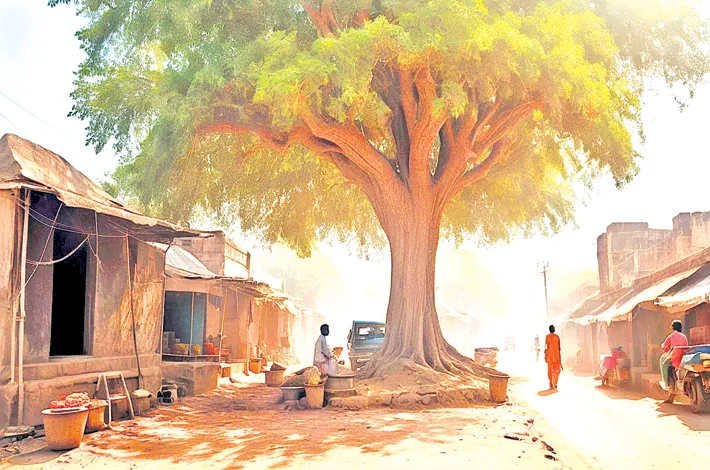
Digging deeper, Arjun uncovered a pattern. Over the past two years, three other women—migrant workers like Sarita—had vanished from Nagarkurnool. Their cases were buried, dismissed as runaways. Each had worked at Rao’s factory. Arjun’s instincts screamed conspiracy, but he needed proof
Nagarkurnool, a dusty town in Telangana, hummed with the rhythm of rural life—rickshaws rattling over potholed roads, vendors hawking spicy vada under banyan trees, and the distant chime of temple bells. But beneath its sunbaked surface, a darkness festered, one that Inspector Arjun Reddy was about to uncover.
Arjun, a wiry man with a salt-and-pepper beard, had served Nagarkurnool’s police force for two decades. Known for his relentless pursuit of justice, he was a local legend, though his superiors in Hyderabad often dismissed him as a small-town cop chasing petty thieves. Tonight, however, was different. A call had come in at 11 p.m., shattering the quiet of his modest office. A body had been found in the Krishna River, near the ancient Someswara Temple.
Arjun arrived at the scene, his jeep’s headlights cutting through the fog. The riverbank was eerily silent, save for the soft lapping of water. Constables had cordoned off the area, their torches illuminating a grim sight: a young woman, no older than 25, lay half-submerged in the shallows. Her crimson saree clung to her lifeless form, and her throat bore the unmistakable mark of a garrote—deep, precise, and brutal. A single jasmine flower rested on her chest, its white petals stark against the bloodstains.
“Any ID?” Arjun asked Sub-Inspector Lakshmi, his sharp-eyed deputy.
“Nothing yet, sir,” Lakshmi replied, crouching beside the body. “No purse, no jewelry. But look at her hands—calluses, chipped nails. She worked hard, maybe a laborer.”
Arjun’s gut churned. This wasn’t a random killing. The flower, the garrote—it was too deliberate. He scanned the surroundings. The temple loomed in the distance, its stone carvings watching like silent sentinels. Beyond it, the town’s rice fields stretched into the night, hiding secrets in their shadows.
By dawn, the victim was identified: Sarita Devi, a 24-year-old migrant worker from a nearby village. She’d come to Nagarkurnool seeking work at the local textile factory, one of the town’s few industries. Her roommate, a timid girl named Kavya, told Arjun that Sarita had been acting strange for weeks—secretive phone calls, late-night outings. “She said she’d found a way to make real money,” Kavya whispered, eyes darting nervously. “But she wouldn’t tell me how.”
Arjun’s investigation led him to the textile factory, a sprawling compound owned by Vikram Rao, a wealthy businessman with a reputation for ruthlessness. Rao was a pillar of Nagarkurnool, funding festivals and temples, but rumors swirled about his ties to smuggling and black-market deals. At the factory, Arjun questioned the foreman, a sweaty man named Gopal, who claimed Sarita was a model worker but knew nothing about her personal life. Yet Gopal’s twitching hands betrayed him.
Digging deeper, Arjun uncovered a pattern. Over the past two years, three other women—migrant workers like Sarita—had vanished from Nagarkurnool. Their cases were buried, dismissed as runaways. Each had worked at Rao’s factory. Arjun’s instincts screamed conspiracy, but he needed proof.
That night, he staked out the factory, hidden in the cab of an abandoned tractor. At 2 a.m., a black SUV rolled up. Two men emerged, dragging a hooded figure toward a warehouse. Arjun’s pulse raced. He crept closer, his service revolver drawn. Through a cracked window, he saw the hooded figure—a woman—tied to a chair. One of the men ripped off the hood, revealing Kavya, Sarita’s roommate. Her face was bruised, her eyes wide with terror.
“You should’ve kept quiet,” growled a voice. Arjun recognized it instantly: Vikram Rao. The businessman paced the room, a knife glinting in his hand. “Sarita thought she could blackmail me. Now you’ll join her.”
Arjun’s mind raced. Rao was running something sinister—human trafficking, perhaps, or worse. The factory was a front. But before Arjun could act, a twig snapped under his boot. The men froze. “Someone’s here,” Rao hissed.
Arjun dove behind a stack of crates as Rao’s goons fanned out. His heart pounded. He was outnumbered, and backup was miles away. Thinking fast, he grabbed a metal pipe and hurled it toward the river, creating a loud splash. The goons ran toward the sound, giving Arjun a narrow window. He slipped into the warehouse, knocked out the lone guard, and untied Kavya.
“Run to the temple,” he whispered. “Get the priest to call Lakshmi.”
Kavya nodded, trembling, and fled. But Rao returned, his eyes locking onto Arjun. “Inspector,” he sneered, raising his knife. “You’re meddling in things you don’t understand.”
Arjun dodged a slash, tackling Rao to the ground. The men grappled, the knife skittering across the floor. Rao was stronger than he looked, but Arjun’s years of wrestling dacoits gave him the edge. He pinned Rao, cuffing his wrists just as Lakshmi and a team of constables stormed in, alerted by Kavya. The aftermath was chaos. Rao’s arrest exposed a trafficking ring that stretched from Nagarkurnool to Hyderabad, preying on vulnerable women like Sarita. The jasmine flower, Arjun learned, was Rao’s twisted signature, a mockery of purity. The other missing women were traced, some alive, others lost forever.
As dawn broke over the Krishna River, Arjun stood by the temple, watching the water flow. Sarita’s killer was behind bars, but the town’s wounds would take time to heal. He lit a cigarette, the smoke curling skyward like a prayer. Nagarkurnool was his home, his battleground. And he’d fight for it, one crimson-stained case at a time.





